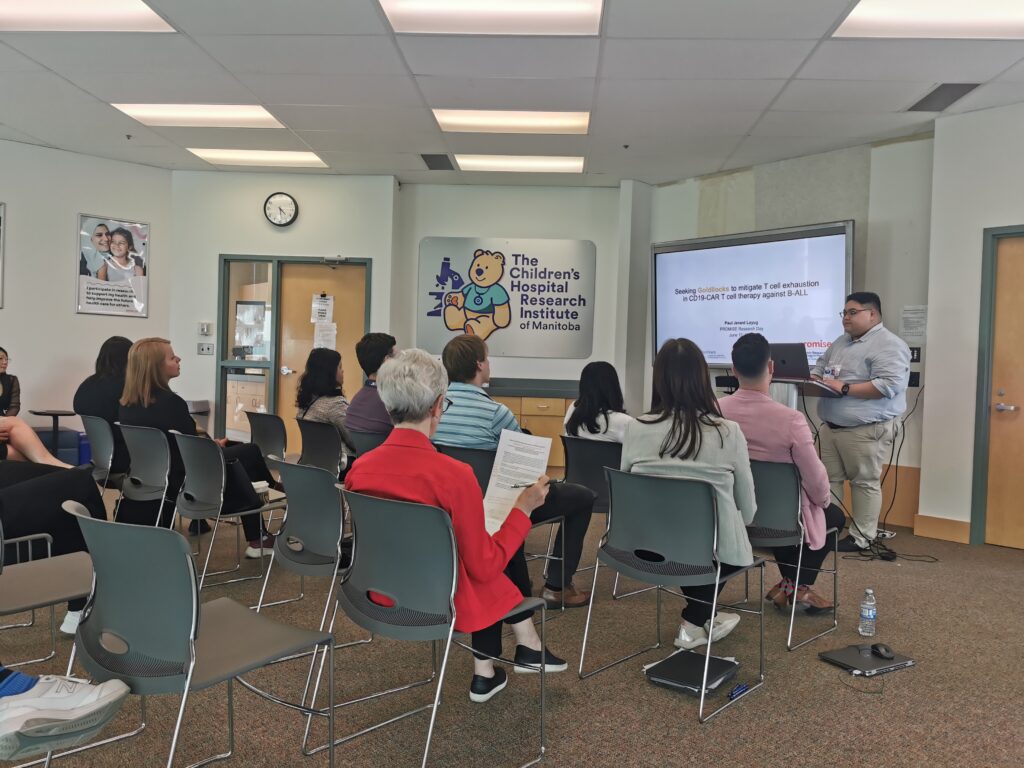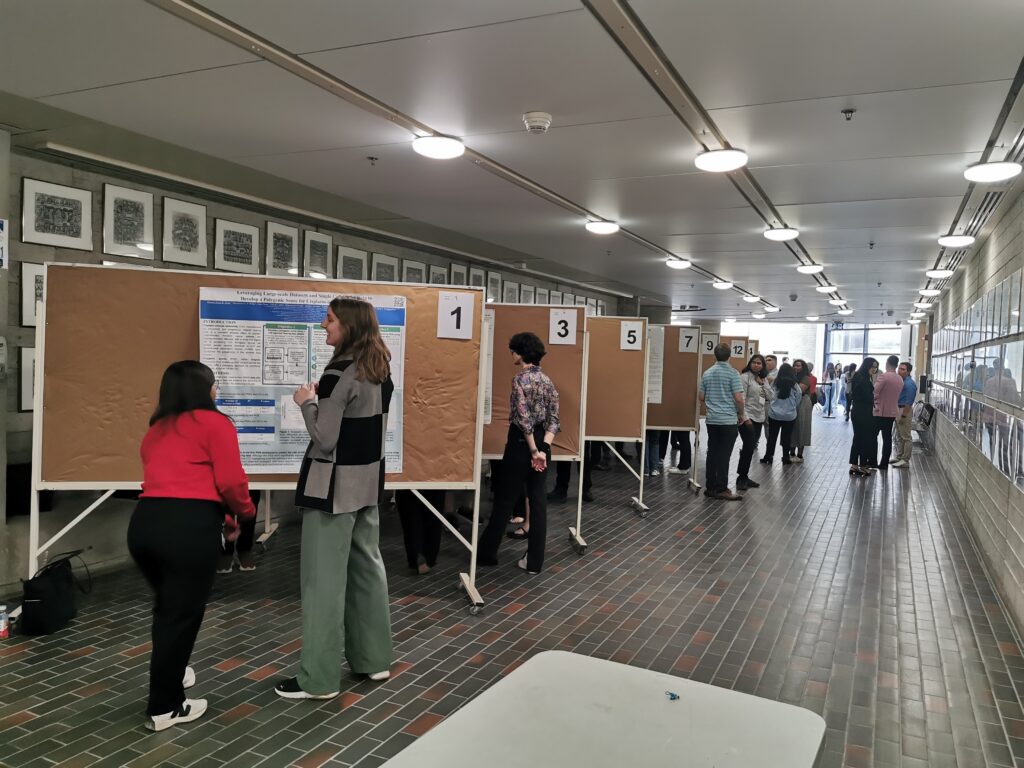In the world of pediatric cancer research, a program at the Children’s Hospital Research Institute of Manitoba (CHRIM) has reimagined the ways to perform research with a tightly connected group of scientists, clinicians and families working together in a way that’s rarely, if ever, seen anywhere else.
PROMISE stands for Pediatric Research in Oncology in Manitoba: Innovation, Science, Excellence and brings together scientists, clinicians, patient families, and health system leaders to collaborate in real time on childhood cancer research.
“This kind of collaboration does not happen anywhere else, not like this,” says Dr. Cedric Tremblay, an investigator at CHRIM and immunologist and assistant professor in the department of immunology at the University of Manitoba. “PROMISE is designed to function as a single, unified team. We’re not working in parallel, we’re working together on the same problems, at the same time.”
While individual labs across Canada and around the world study pediatric cancers, PROMISE stands out for its deeply integrated model. One that breaks down silos and brings researchers, clinicians from CancerCare Manitoba and families into every stage of the scientific process.

The initiative is co-led by Tremblay alongside fellow CHRIM researchers Dr. Britt Drögemöller, a pharmacogenomics expert, and Dr. Sapna Oberoi, a pediatric oncologist and clinician-scientist. Their work spans molecular biology, drug response, patient care and long-term outcomes, but what makes PROMISE unique is how intentionally those efforts are linked.
Scientists, clinicians and data experts have joined forces to tackle one of the most aggressive forms of childhood cancer: T-cell acute lymphoblastic leukemia (T-ALL).
“Too often in science, researchers stay in their own lanes,” Tremblay says. “But childhood cancer is too complex for that. PROMISE is about integration from the lab bench to the bedside and back again.”
The team meets regularly to align lab discoveries with clinical care. Through shared databases, cross-disciplinary mentorship, and joint project design, PROMISE ensures that no research question is asked in isolation and no breakthrough happens in a vacuum.
Equally important is the involvement of patients and families. PROMISE embeds family advisors and community voices into its research, making them active partners in shaping priorities and outcomes in cancer research.
“We’re not just trying to publish papers. We’re trying to improve lives,” Tremblay says. “That only happens if we listen to the people most affected by these diseases.”

PROMISE also invests in the future of pediatric cancer research through hands-on training of graduate students and early-career scientists. By exposing young researchers to a collaborative environment from the outset, the program hopes to seed a new generation of team-oriented leaders in the field.
The PROMISE model is already drawing attention beyond the province. Its structure is nimble, scalable and built for impact, both locally and globally.
“Our smaller size lets us build closer relationships and move faster,” says Tremblay. “We can test ideas, refine them with clinicians, and pivot quickly. That agility, paired with a collaborative culture, is what makes PROMISE powerful.”
With support from the Children’s Hospital Foundation of Manitoba, PROMISE is still growing, but its ambitions are clear.
“If we want to change the way the world treats childhood leukemia, we have to rethink how we do research,” Tremblay says. “We believe that starts with working together, better, smarter and with a shared sense of purpose.”
“We think this is a unique environment in Canada, if not in the world.” says Tremblay, “People working in the lab are working very closely with the clinicians who are treating patients – and also with patient advocates and patients and families.”
Stay in touch!
Sign up for e-news to get updates on the latest events, news, and stories.
sign up for the newsletter